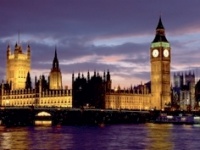The nation is poised to undergo what is likely to be a battle of an election, indeed the closest fought since 1974. If all the opinion polls of recent months are to be believed what would happen to the UK and importantly, our engineering and science sector, if the result of this is a hung parliament?
Regardless of who has the most votes, the Lib Dems could well emerge from the election with the ability to sway or even direct future policy.
Climate change, energy supply, manufacturing and skills are just some of the what the Institution of Mechanical Engineers believes are critical subjects that should be at the top of any new government’s agenda.
The Conservatives, for example, have recognised with their recent Rebuilding Security paper that we have hit a point in time where large-scale replacement of ageing energy infrastructure is necessary. We should as a nation now grab this opportunity to tap into alternative sources of energy such as wind, wave and tidal.
The Institution is an apolitical society that has heavily campaigned on such issues and those that fall under our four key themes: energy, environment, transport and education. With the three main parties offering different policies in the areas of energy, environment, transport and the economy, it will be interesting to witness which ones are formed, and which are made to happen.

Each party has its own ideas on how the UK will ‘keep its lights on’. The most significant policy seems to be the Lib Dem pledge that 100% of our electricity will be sourced from renewables by 2050. Ambitious? Most definitely. Persistence in renewable solutions does provide an interesting opportunity for research & development (R&D). The renewables sector is growing on a year-by-year basis and with additional R&D funding we could easily lead the world. The opportunity for additional employment growth is also encouraging with many organisations estimating a growth of nearly 400,000 new green engineering jobs by 2020.
On new nuclear build, it is widely known that the Lib Dems do not accept this as a way forward. Labour and the Conservatives have both pledged to support a new nuclear build programme, which will almost certainly provide the majority of future base-load electricity, so it is doubtful that this will ever really be on the negotiating table.
What about railways? Over the last 15 years, engineers have made great improvements to the infrastructure and rolling stock, providing more comfortable, reliable and energy efficient trains. Further to this, the Lib Dems have, like the Institution, promoted the need to move more freight from our road network onto the rails. This use of our rail network for commercial and passenger usage has many issues that need to be developed but if achieved, could reduce road congestion and save the UK economy over £10bn annually.
We have also called for stricter emission targets than those set by Europe or the UK. Engineers are practical people though and if we are to achieve an 80% emissions reduction a fundamental move to electric or hybrid vehicles will need to take place along with significantly increased electricity capacity.
And what of manufacturing? The Institution has just produced a Manifesto for UK Engineering which is now supported by an Early Day Motion receiving cross-party support. As manufacturing accounts for nearly 80% of our exports but only 16% of our economy even a 10% upturn in manufacturing exports and a 10% decrease in imports of manufactured goods, would produce a £45bn annual improvement in the balance or payments. This in turn would substantially increase the workforce of the UK’s engineering and manufacturing sectors.
The efforts of any parliament, hung or not, which seeks to adopt realistic approaches to the challenges that lie ahead should be applauded because despite the best efforts of engineers and technologists to provide the solutions it is politicians who wield the power. One would hope that this new Government will recognise the need to work side by side with the engineering and science community. This could become one of the most interesting elections ever fought.
BIOGRAPHY
Stephen Tetlow
CEO, Institution of Mechanical Engineers (IMeche)
Education
- MSc and an MBA from The City University London and The Royal Military College of Science.
Career
- Began career in 1972 as an engineering apprentice with Smiths Industries Ltd, worked as a design engineer in the motor and aerospace divisions
- Spent 25 years in the Royal Electrical and Mechanical Engineers (REME) working on vehicle, communications, aircraft and weapon systems support operations.
- After a spell as Director of Operations at the Defence Logistic Organisation, became the head of REME and Director of Electrical and Mechanical Engineering for the Army.
- In 2004 he took a new appointment in the Transport Industry to become Chief Executive of the Vehicle Operator Services Agency (VOSA
- 2009 Joined the iMeche












Deep Heat: The new technologies taking geothermal energy to the next level
No. Not in the UK. The one location in the UK, with the prospect of delivering heat at around 150°C and a thermal-to-electrical efficiency of 10-12%,...